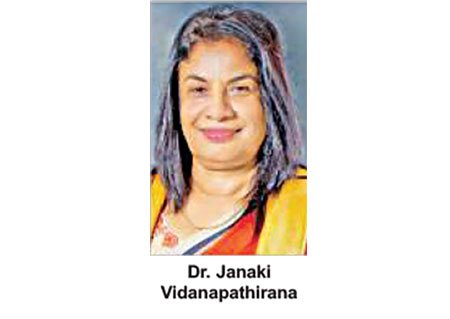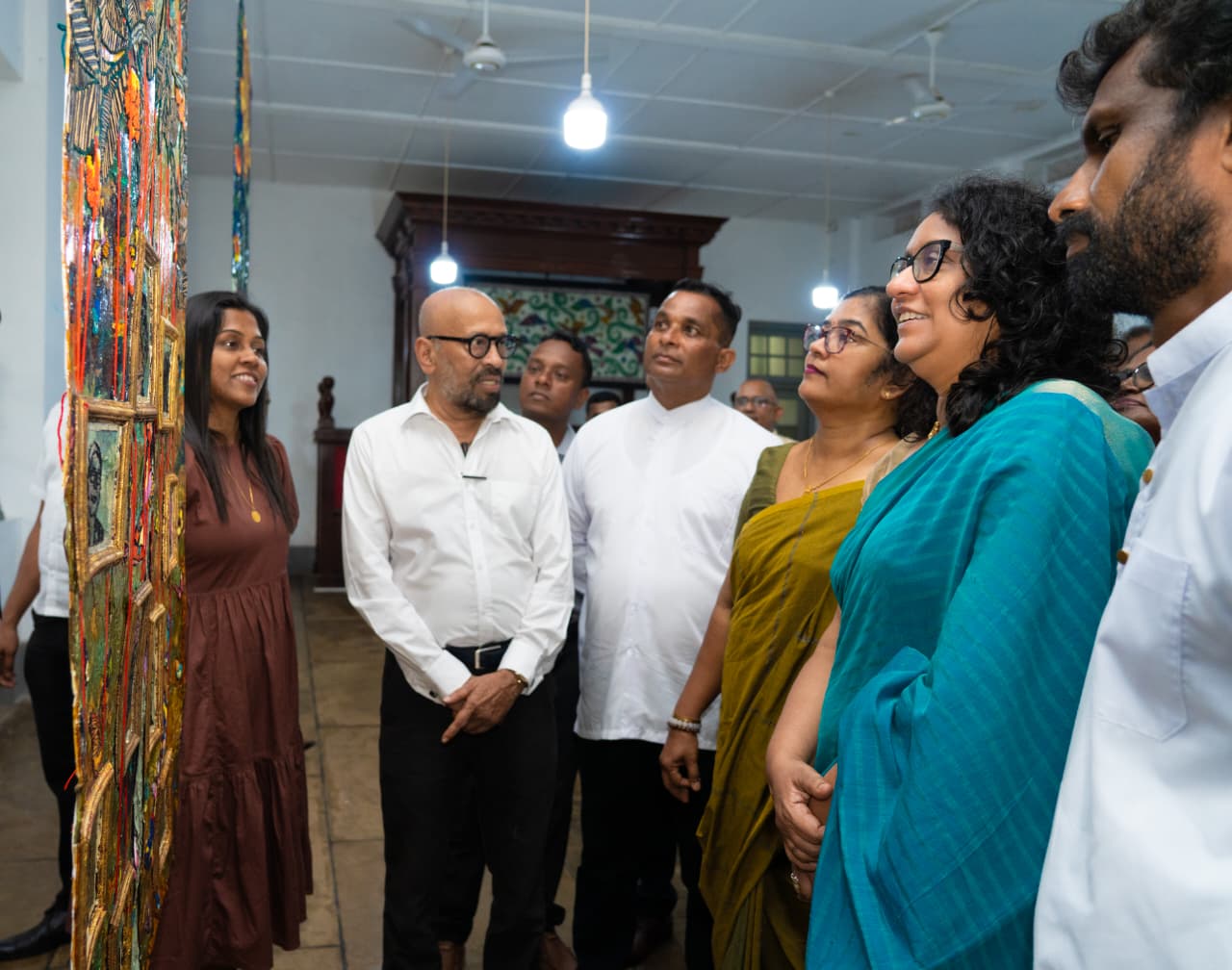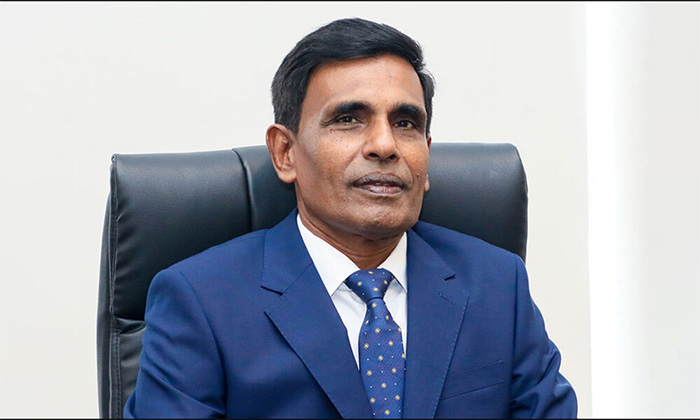News
Alarming spike in new cancer patients in Sri Lanka amidst aflatoxin fears in foodstuffs

by Suresh Perera
In the backdrop of concerns expressed by medical experts over ingesting foodstuffs with carcinogenic aflatoxins, Sri Lanka has witnessed a disturbing spike in cancer with 33,226 fresh cases on the basis of 89 new patients per day reported in 2019.
The number of cancer-related mortalities during the year under review was 16,691 with 46 patients dying of the dreaded disease per day, according to new statistics.
“There were 75,909 prevalent cases of cancer in Sri Lanka’, the Health Ministry’s National Cancer Control Program (NCCP), said.
Non-Communicable Diseases (NCDs) account for almost 83% of total deaths in the country and the proportional mortality due to cancer is estimated to be 14%, it said.
“Newly detected cancer cases have shot up from a moderate 13,372 in 2005 to more than 30,000 in 2019”, says NCCP’s Acting Director, Dr. Janaki Vidanapathirana.
“There has been a steady surge in new cancer cases over the past 14 years”, she said.
Medical experts contend that aflatoxins (a family of toxins produced by certain fungi found on agricultural crops such as maize (corn), peanuts, cottonseed, and tree nuts) in the human system can cause a carcinogenic reaction over a period of time.
Director-General of the Sri Lanka Standards Institution (SLSI), Dr. Siddika Senaratne’s recent assertion that, apart from imported coconut oil, certain other consumables also contained aflatoxins, triggered a controversy over the safe consumption of certain foodstuffs.
Amidst public fears over products identified on social media platforms, rightly or wrongly, the critical question that emerged was for how long people had been consuming such foodstuffs and whether they continue to do so despite the claimed carcinogenic substances in them.
There was confusion in the public mind as Dr. Senaratne declined to identify the contaminated products saying that naming them will reflect adversely on the trade.
“They should be given time to remedy the shortcomings”, she said.
Asked whether the presence of aflatoxin in imported coconut oil, as discovered recently, and possibly other foodstuffs could have contributed towards the exponential increase in the incidence of cancer in the country, Dr. Vidanapathirana said that exposure to any aflatoxin will increase the risk of cancer, but it depends on the duration and the quantum ingested.
There are usually 800-850 new liver cancer cases per year caused mainly due to alcohol consumption, tobacco smoking, hepatitis b and c and aflatoxins. Cancer is of multifactorial origin. Tobacco causes 15 types of cancers in the human body, while alcohol accounts for five types, the Consultant Community Physician explained.
Leading the list of top 10 cancers in Sri Lanka amongst males was mouth, lip and tongue cancer at 14% in 2019 followed by trachea, bronchus and lung (9%), colorectal (8%) oesophagus (7%), prostate (7%), larynx (4%), bladder (4%), lymphoma (4%), thyroid (3%) and others (40%).
Amongst females, breast cancer topped the list at 26% followed by thyroid (13%), colorectal (7%), ovary (6%), oesophagus (5%), uterus (4%), ovary (6%) trachea, bronchus and lung (3%), lymphoma (3%), oral (3%) and others (25%).
Oral cancer in Sri Lanka remains the highest in the world, Dr. Vidanapathirana said, while stressing that a structured program of action to arrest the alarming trend is the need of the hour.
Cancer is the uncontrolled growth of abnormal cells in the body. Cancer develops when the body’s normal control mechanism stops working. Old cells do not die and instead grow out of control, forming new, abnormal cells. These extra cells may form a mass of tissue, called a tumor. Some cancers, such as leukemia, do not form tumors.
“Cancer can be prevented through early detection”, she noted, while warning that obesity, tobacco smoking, alcohol consumption and physical inactivity have been identified as some of the primary causes that lead to the dreaded disease.
Asked whether consumption of milk activates dormant cancer cells, she replied “I don’t know. There’s no such evidence”
However, the intake of dairy milk is associated with a greater risk of breast cancer in women, according to a new study conducted by researchers at Loma Linda University Health.
Dairy, soy and risk of breast cancer: Those confounded milks, published in the International Journal of Epidemiology, found that even relatively moderate amounts of dairy milk consumption can increase women’s risk of breast cancer — up to 80% depending on the amount consumed.
First author of the paper, Gary E. Fraser, MBChB, PhD, said the observational study gives “fairly strong evidence that either dairy milk or some other factor closely related to drinking dairy milk is a cause of breast cancer in women, the ScienceDaily reported in 2020. (https://www.sciencedaily.com/releases/2020/02/200225101323.htm)
News
Matara Festival for the Arts’ inaugurated by the Prime Minister

The inaugural ceremony of the Matara Festival for the Arts, featuring a wide range of creations by local and international artists, was held on February 19 at the Old High Court premises of the Matara Fort, under the patronage of Prime Minister Dr. Harini Amarasuriya.
The festival, centred around the Old High Court premises in Matara and the auditorium of the Matara District Secretariat, will be open to the public from 20 to 23 of February. The festival will be featured by visual art exhibitions, short film screenings, Kala Pola, and a series of workshops conducted by experts.
The inaugural event was attended by the Minister of Women and Child Affairs, Ms. Saroja Paulraj, along with artists, guests, and a large number of schoolchildren.
(Prime Minister’s Media Division)
News
Only single MP refuses salary as Parliament details pays and allowances

Only one Member of Parliament has chosen not to receive the salaries and allowances entitled to MPs, Prime Minister Dr. Harini Amarasuriya revealed in Parliament last Thursday, shedding light on the financial perks enjoyed by members of the Tenth Parliament.
Speaking on Thursday (Feb. 19) in response to a question from SJB Badulla District MP Chaminda Wijesiri, the Prime Minister outlined the full range of pay and allowances provided to parliamentarians.
According to Dr. Amarasuriya, MPs receive a monthly allowance of Rs. 54,285, an entertainment allowance of Rs. 1,000, and a driver’s allowance of Rs. 3,500—though MPs provided with a driver through the Ministry of Public Security and Parliamentary Affairs are not eligible for the driver’s allowance.
Additional benefits include a telephone allowance of Rs. 50,000, a transport allowance of Rs. 15,000, and an office allowance of Rs. 100,000. MPs are also paid a daily sitting allowance of Rs. 2,500 for attending parliamentary sessions, with an additional Rs. 2,500 per day for participation in parliamentary sittings and Rs. 2,500 per day as a committee allowance.
Committee meetings held on non-parliament sitting days also attract Rs. 2,500 per day.
Fuel allowances are provided based on the distance between an MP’s electoral district and Parliament. National List MPs are entitled to a monthly allocation equivalent to 419.76 litres of diesel at the market price on the first day of each month.
Despite the comprehensive benefits, only SJB Badulla District MP Nayana Wasalathilaka has opted not to draw a salary or allowances. Dr. Amarasuriya said that in accordance with a written notification submitted by MP Wasalathilaka on August 20, 2025, payments have been suspended since that date.
The Prime Minister also confirmed that she, along with the Speaker, Deputy Speaker, committee chairs, ministers, deputy ministers, the Opposition Leader, and senior opposition whips, have all informed the Secretary-General of Parliament in writing that they will not claim the fuel allowance.
Challenging the ruling party’s voluntary pledge to forgo salaries, MP Wijesiri pointed out that all MPs except Wasalathilaka continue to receive their salaries and allowances. “On one hand you speak about the people’s mandate, which is good. But the mandate also included people who said they would voluntarily serve in this Parliament without salaries. Today we have been able to prove, Hon. Speaker, that except for one SJB MP, the other 224 Members are drawing parliamentary salaries,” he said.
The Prime Minister responded by defending the political culture and practice of allocating portions of MPs’ salaries to party funds. Referring to previous practices by the JVP and NPP, she said: “It is no secret to the country that the JVP has for a long time not personally taken MPs’ salaries or any allowances. I think the entire country knows that these go to a party fund. That is not new, nor is it something special to mention. The NPP operates in the same way. That too is not new; it is the culture of our political movement.”
When MP Wijesiri posed a supplementary question asking whether diverting salaries to party funds was an indirect method of taking care of MPs, Dr. Amarasuriya said: “There is no issue there. No question was raised; the Member made a statement. What we have seen throughout this week is an inability to understand our political culture and practice, and a clash with decisions taken by political movements that misused public funds. What is coming out is a certain mindset. That is why there is such an effort to find fault with the 159. None of these facts are new to people. He did not ask a question, so I have nothing to answer.”
The disclosures come days after the Government moved to abolish the parliamentary pension, a measure that has sparked renewed debate over MP compensation and the transparency of funds allocation.
News
Illegal assets of underworld figures frozen since September, Minister tells parliament

Public Security and Parliamentary Affairs Minister Ananda Wijepala on Friday (20) disclosed in Parliament details of properties and assets allegedly acquired through illegal activities by suspects arrested in raids carried out since September last year.
The Minister made the disclosure in response to a question raised by MP Ravindra Bandara, stating that the identified assets have been frozen pending further investigations.
He said the assets include properties belonging to several alleged organised crime figures, among them Mandinu Padmasiri, alias ‘Kehelbaddara Padme’, who was arrested last year.
Listing the assets in the House, the Minister said Hapugoda Arachchige Kankanamge Duminda Dilruk has assets worth Rs. 23 million frozen, including a van, a motorcycle, a house and a roller gate.
In the case of Kandaiya Kalamogan, two motorboats have been identified, although their value has not yet been assessed.
Dilum Tharaka Balasuriya is reported to own a two-storey house situated on 15 perches of land with a face value of Rs. 800,000.
Assets belonging to Mohammad Harish Mohammad and Mohammad Shiyam were frozen on January 21, 2026. While the total value has not yet been assessed, five vehicles were confiscated from the former and a car from the latter.
Wijesuriya Mahaduruge Uditha Iroshan Wijesiri has assets valued at Rs. 5 million, including a lorry, while Indika Pathmakumara’s assets include a cab worth Rs. 2.5 million and a bank account containing Rs. 1 million.
Lahiru Sampath is reported to own a three-wheeler valued at Rs. 1.8 million.
According to the Minister, Hettiarachchige Dona Sriyani Chandralatha possesses a four-storey house and 14.7 perches of land valued at Rs. 60 million.
Mandinu Padmasiri, alias ‘Kehelbaddara Padme’, owns 20 perches of land with partially constructed buildings valued at Rs. 30 million and a half-finished six-room building worth Rs. 20 million, the Minister said.
Patabendi Maddumage Shehan Sathsara, alias ‘Dehi Bale Malli’, has five multi-day fishing trawlers valued at Rs. 200 million and a two-storey house with 15.8 perches of land worth Rs. 50 million.
The Minister further disclosed that Jayasinghege Maduranga Sampath owns a cab worth Rs. 5.4 million, a van valued at Rs. 14.5 million, five bank accounts containing Rs. 73.03 million, another account with Rs. 160,328.88 and USD 544, and Rs. 283 million in cash.
Adhikari Samantha Perera is reported to own 10.10 perches of land valued at Rs. 5 million and one acre and 1.5 perches of land worth Rs. 13 million.The Minister said investigations are continuing in respect of the suspects and the frozen assets.
-

 Business6 days ago
Business6 days agoMinistry of Brands to launch Sri Lanka’s first off-price retail destination
-

 Latest News2 days ago
Latest News2 days agoNew Zealand meet familiar opponents Pakistan at spin-friendly Premadasa
-

 Latest News2 days ago
Latest News2 days agoTariffs ruling is major blow to Trump’s second-term agenda
-

 Latest News2 days ago
Latest News2 days agoECB push back at Pakistan ‘shadow-ban’ reports ahead of Hundred auction
-

 Features6 days ago
Features6 days agoGiants in our backyard: Why Sri Lanka’s Blue Whales matter to the world
-

 Sports3 days ago
Sports3 days agoOld and new at the SSC, just like Pakistan
-

 News2 days ago
News2 days agoConstruction begins on country’s largest solar power project in Hambantota
-

 News5 days ago
News5 days agoIMF MD here













